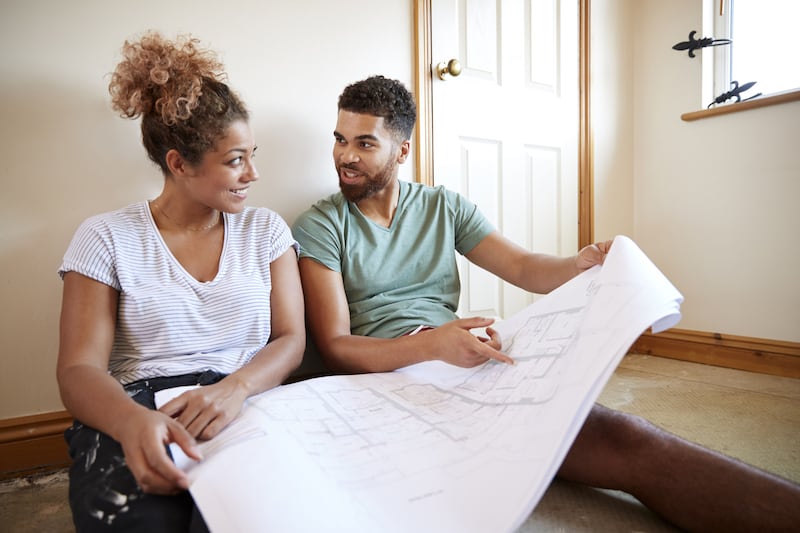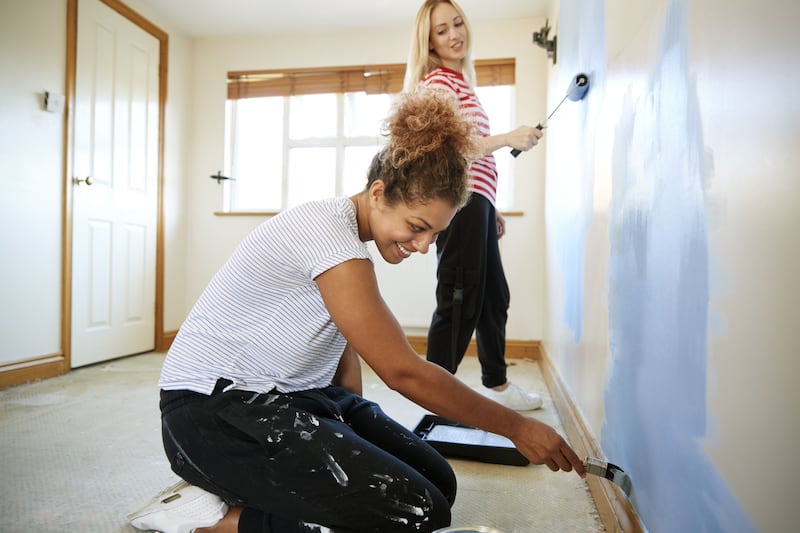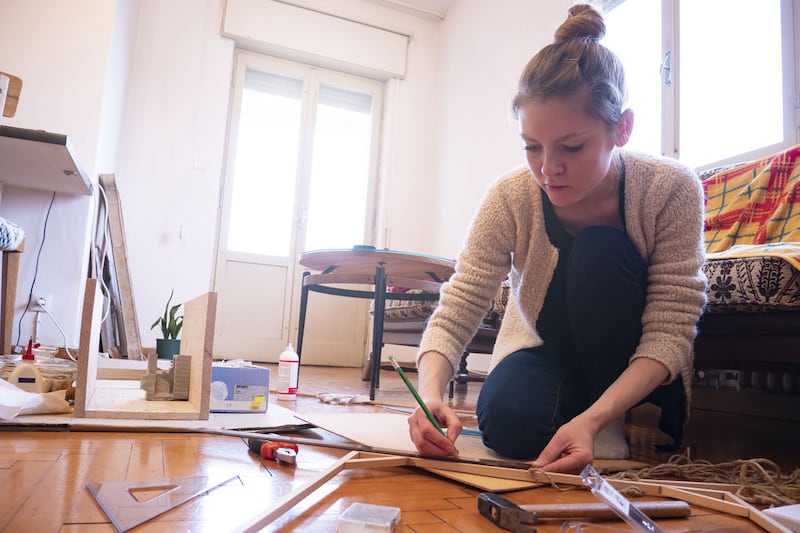Many households have used some of the time they’ve had on their hands in recent months during lockdown, to finally get around to tackling DIY projects.
However, some are now paying the price for work they perhaps wish they’d never even started.
Nearly a third (31 per cent) of people across the UK who have tried their hand at DIY since lockdown started in March, admit it’s now likely they’ll be calling in a professional to correct, improve or complete projects, according to a new survey from Shawbrook Bank‘s personal loans division.
Around 1,500 homeowners across the UK, who had undertaken DIY projects since March 23, were polled for the research.
So, what are these dodgy DIY decisions costing people? And is there a more budget-friendly way of finishing the job?
How much do homeowners now expect to fork out to put projects right?
Dissatisfied DIY-ers are expecting to spend an average of £552 dealing with their mishaps. Looking at why projects have gone unfinished, more than a third (34 per cent) say that other priorities have simply got in the way of them being able to complete their work, the survey found. A fifth (20 per cent) claim they have been overwhelmed by the extent of the work involved.
A significant number also miscalculated the costs involved, with 20 per cent also saying that budget restrictions were the main reason they weren’t able to finish the project.
The majority of those surveyed had undertaken smaller scale projects, such as decorating or laying flooring, or putting together furniture. But some had been more ambitious, by trying to renovate an entire room in their house, for example.
What do the experts say?
Building services and DIY expert Chris Rice, says: “We’ve already been getting calls from lockdown DIY-ers in need of help. Most recently was a gentleman who had attempted to convert a flat roof above his property into a roof garden, and caused a leak by nailing things in incorrectly. Another attempted to fix a leak in his shower and almost flooded the floor below.
“It’s also worth noting that sourcing materials remains a challenge,” adds Rice. “Plaster and paint have caused the main issues, but smaller things like door hinges and handles have been much harder to get hold of too.
“While these uncertain times continue, waiting times are likely to be that bit longer and more unpredictable. If that is the case for you, unfortunately your contractor may not always be able to guarantee an end date for work.”
What to consider before tackling a DIY project
Paul Went, managing director of consumer lending at Shawbrook Bank, says: “No matter how straightforward a project may seem, there can be complications or reasons why people aren’t able to finish the work themselves. It’s therefore a good idea to approach any work with careful planning, and a contingency plan in case you need to inject some extra cash into getting the project finished to your satisfaction.
“To maximise return on investment and avoid overstretching your finances, you want to minimise any unexpected costs by setting out a clear and realistic cost plan,” adds Went. “If a project looks set to go over budget, explore all your options before deciding how you will finance any overspend.
“If you don’t have savings to dip into, decisions around borrowing should never be rushed – research all the avenues thoroughly and shop around to make sure you’re getting the absolute best deal for you.”
HERE ARE PAUL WENT’S FIVE TOP TIPS FOR FINANCING DIY HOME IMPROVEMENTS
- Set yourself a clear budget and think carefully about all the costs involved. Allow a contingency plan for any aspects that may not go quite to plan.
- Get more than just one quote for materials or tools. That way, you will be able to get a better understanding of what is a fair price to pay.
- Explore different financing options to decide which option is best for you, it could be through savings, a personal loan, or other forms of credit.
- If you’re borrowing money, shop around to find the best interest rates and keep in mind how potential changes may affect your costs in the long-term. The impact of Covid-19 on the UK economy and household finances means that lenders may be more cautious in the current climate, so it is worth taking time to find a rate that is right for you so that you can manage your repayments.
- For large scale projects, seek a professional valuation to help understand what the potential return on investment might be from the renovations you have planned.







